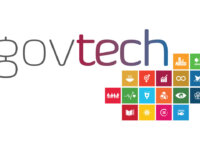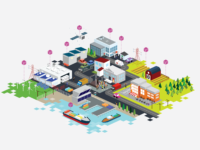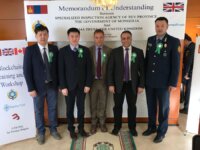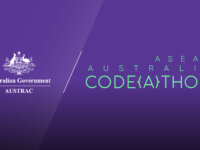GovTech is a Portuguese public competition that rewards innovative products and services provided by Startups and addressing at least one of the 17 Sustainable Development Goals (SDGs).
It intends to stimulate the national Startup ecosystem, by promoting a sustainable economic growth, fostering innovation and opening new economic opportunities based on the 2030 Agenda.
The use of blockchain in the voting phase opened to the public was one of the perks of this competition
Innovation Tag: Blockchain
ID2020 is a public-private partnership dedicated to improving lives through private and user-controlled digital identity. Today, over 1 billion people live without any form of legal ID, which can leave them economically marginalized and robbed of the opportunity for active citizenship. ID2020 is setting technical standards and launching pilot projects aimed at finding scalable digital identity solutions for world's most vulnerable populations, particularly refugees and stateless persons.
Case Study
Transforming International Remittance for Serbian Diaspora using Blockchain and Digital Identity
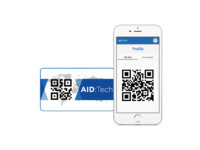
AID:Tech’s blockchain remittance solution offers affordable, transparent money transfer services to users in and outside of Serbia. Implementation partners, senders and recipients gain traceability over the remittance process with fees >3%; in line with UN SDG 10.C
The solution is developed in partnership with UNDP Serbia and part-funded by The Rockefeller Foundation. The solution launched in September 2018 with the support of the city administration of Nis, Serbia.
The frameworks for creating and managing the rule of government, as reflected in policies, legislation and regulation, are still based on a paper paradigm. In a digital world this creates poor service experiences and often the intent of a policy is not achieved. Instead if we co-design authoritative machine-consumable rules we can provide better services for citizens, better delivery of policy intent, and enable communities, NGOs and private sector to be part of a government service ecosystem.
The European Commission led #Blockchain4EU as a forward-looking exploration of existing, emerging and potential Blockchain and other DLTs (Distributed Ledger Technologies) applications for industrial sectors. Through an experimental and participatory approach, this project allowed first to come up with an overview of promising applications across industries, and second to co-design five prototypes that physically showcase how Blockchain could be applied in the near future.
The Specialized Inspection Agency of Tuv Province and the Government of Mongolia Feasibility Study and piloted a project called “Counterfeit drug detection using Blockchain and AI” to eliminate fake drugs from the market, and save the thousands of lives. The project will increase safety and transparency of the drug industry, tracing the pharmaceutical supply chain in Mongolia, as well as globally.
The Korea Power Exchange (KPX) set students and parents as policy targets and systematically connected electricity-saving activities with the performance of volunteer hours which reflected in grades of school students. This program, which estimates electricity savings as a service rather than money, is leading to changes in consciousness that are perceived as social values in the future. The People's Virtual Power Plant will eventually be fused with advanced technology (blockchain, AI, big data)…
AUSTRAC is the first known government law enforcement or intelligence agency to run a global Codeathon forum. AUSTRAC leveraged innovation, collaboration and exploited technology to improve its business operations, develop efficient new solutions in consultation with government partners, industry, academia and the private sector.
This innovation was developed in order to help to prevent interferences, providing a solution for booking frequencies in the general authorization bands.
The main innovation is that this solution is based on the blockchain technology, and open to everybody. This way, our solution guarantees the integrity, the immutability, the transparency, the traceability, the audibility of the reservations of frequencies.
The lab brings citizens and stakeholders together in a structured design process to form a common realisation of present challenges and pathways to the future. The stakeholders engaged are all identified and relevant to the target group. They are part of a national ecosystem from user, practitioner to policymakers locally, regionally and nationally. The design methods used in the lab are visualizations of processes, gap analysis and aesthetic disruption to enable needed cultural transformation.

